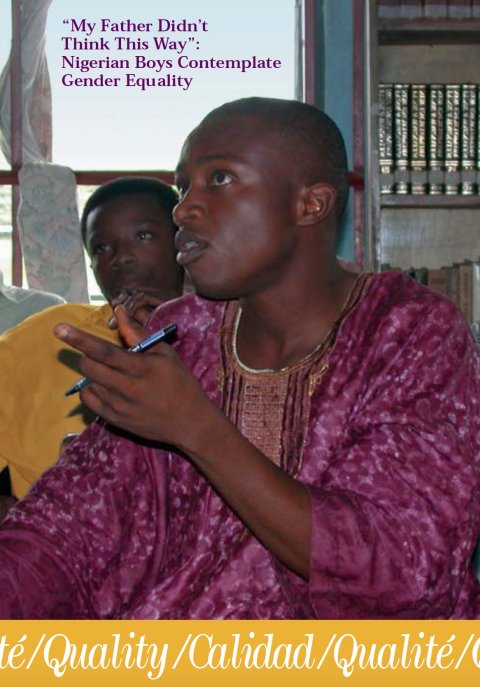Image

This report describes a programme for adolescent boys in Nigeria which seeks to increase boys' awareness of gender-based oppression, and to foster their critical thinking skills as a means to help prevent the spread of HIV/AIDS in their communities.
It outlines the development of the programme, describes various approaches used in the programme, provides quotes from course participants on how their attitudes and behaviours have changed, and discusses some of the issues yet to be addressed in further developing the programme.
Some of the distinctive aspects of the course include:
- male peer groups are used to challenge dominant social ideas of masculinity
- a modified dialogic approach, inspired by Freire, is used instead of didactic methods
- rather than focussing on preventing unwanted pregnancy and HIV, students discuss a range of issues related to sexism, critical thought and relationships
- students attend for a minimum of once a week for one year
- the course targets boys still in school who are social leaders, rather than those most at risk of contracting HIV
- “extra” activities are primarily academic rather than social or athletic, incorporating remedial English and Maths
- the program is closely linked to and draws technical support from a sister project for girls.
Lessons for other organisations identified from the successes of the programme include:
- boys crave knowledge. Substantial and continuous training, along with appropriate reference materials, must be provided to group leaders to foster this process
- many boys aged 14 and older can conceptualize ideas and come to understand the oppression of women by analogy, but the learning process is arduous
- not all boys can fully grasp the concepts of gender equality, but they will, nevertheless, adjust their behaviour to the social norms set by their peers
- for programs trying to reach particularly bright and motivated boys, academic enhancement opportunities may be at least as appealing as other auxiliary program offerings
- effective evaluation methods must be developed to assess changes in social norms and power dynamics at the community level
- helping boys think critically and expanding their knowledge about power and sexism may be more effective than a focus on health in bringing about behavioural change—including those behaviours affecting health.
[adapted from the author]
Please see below for the report, in PDF.